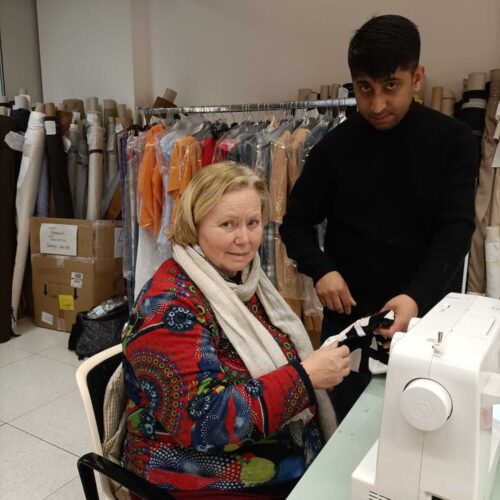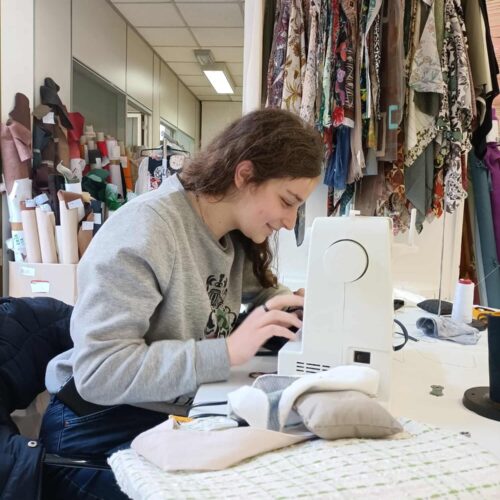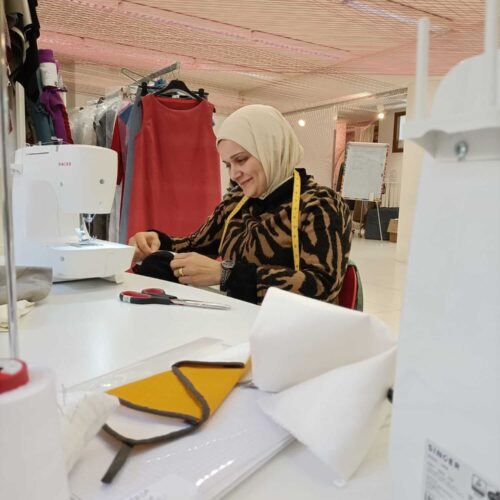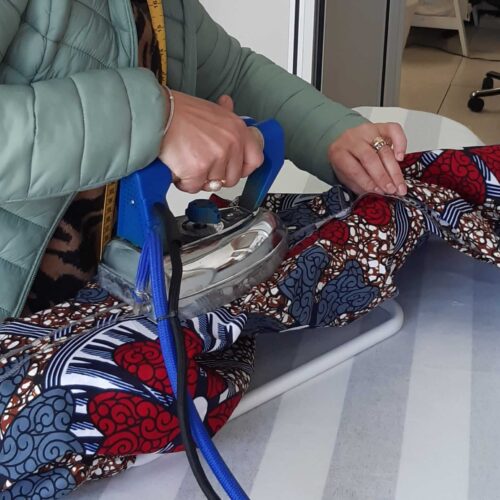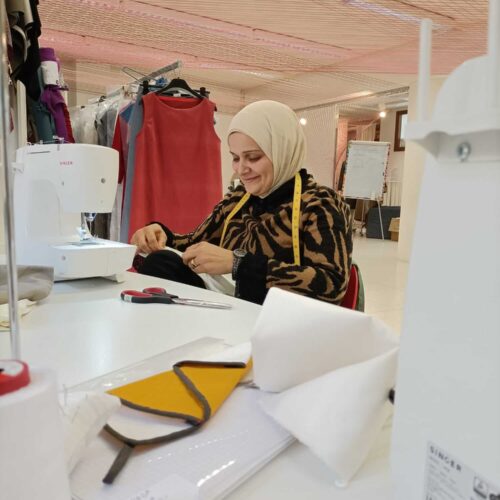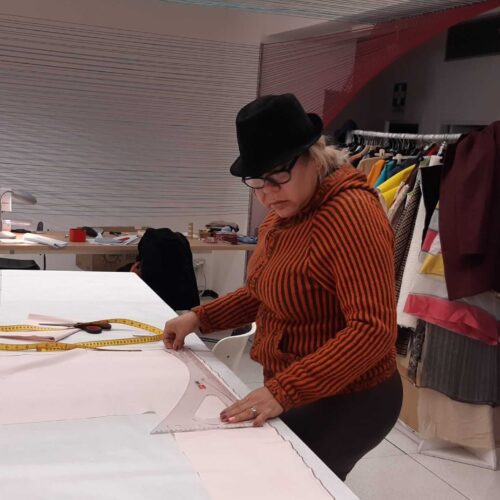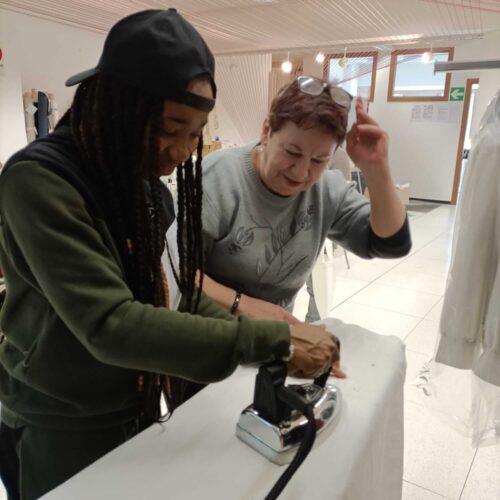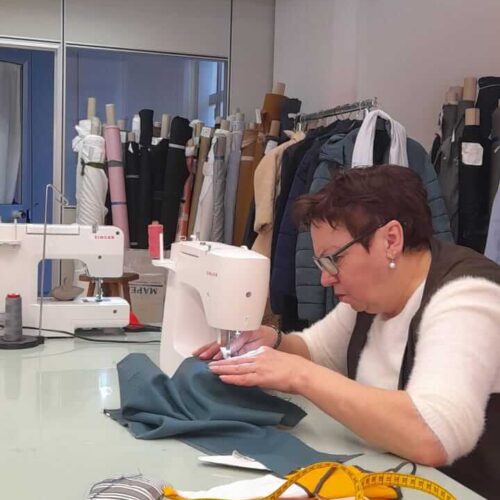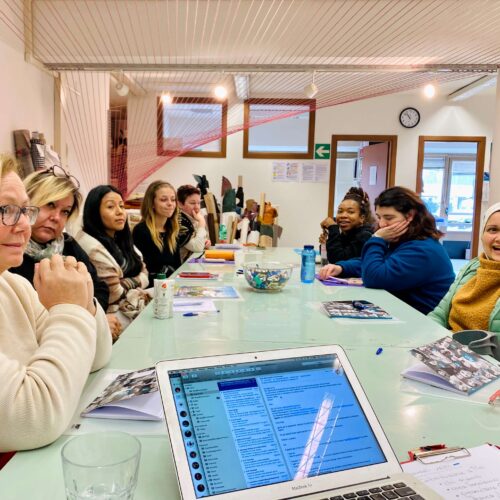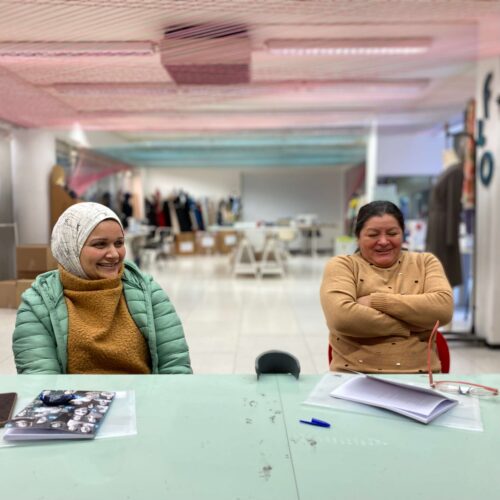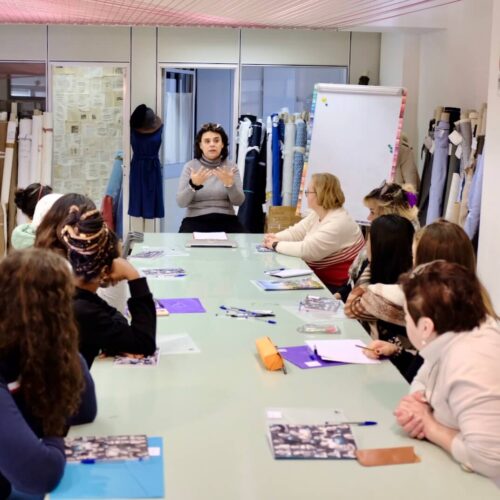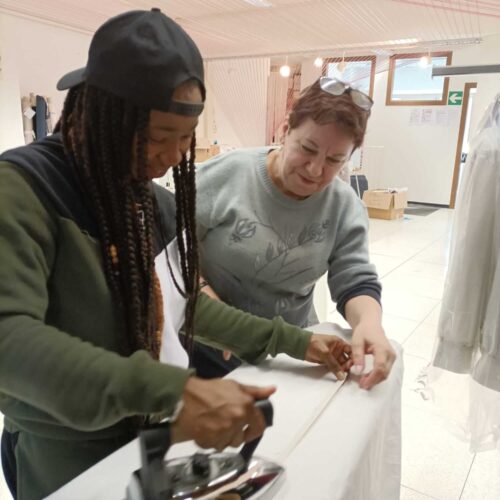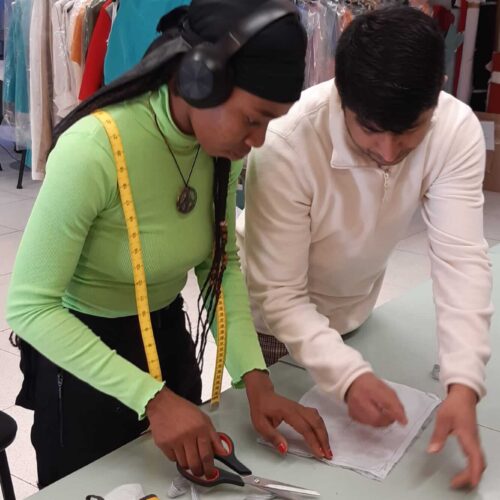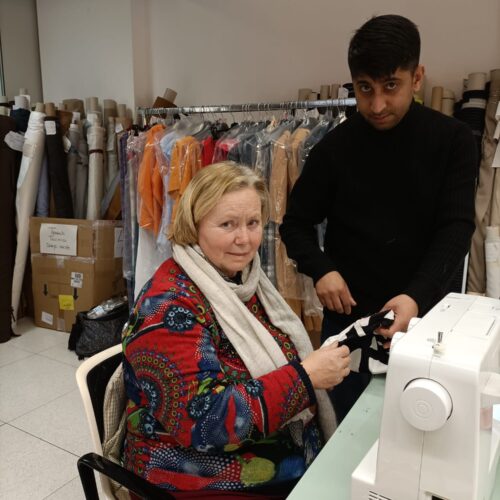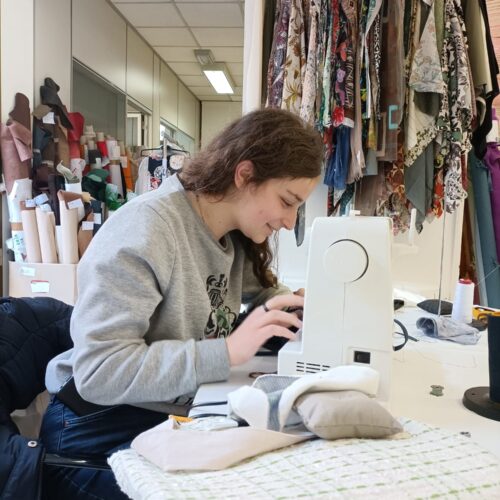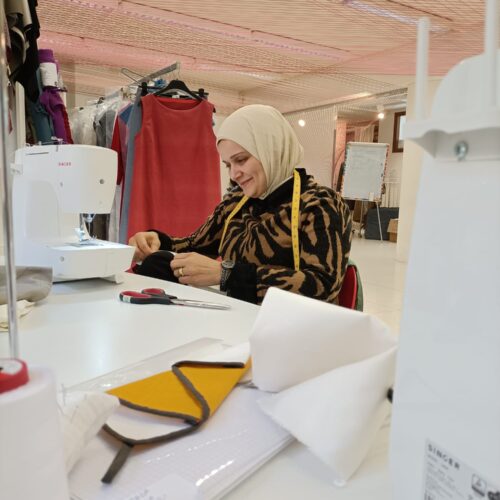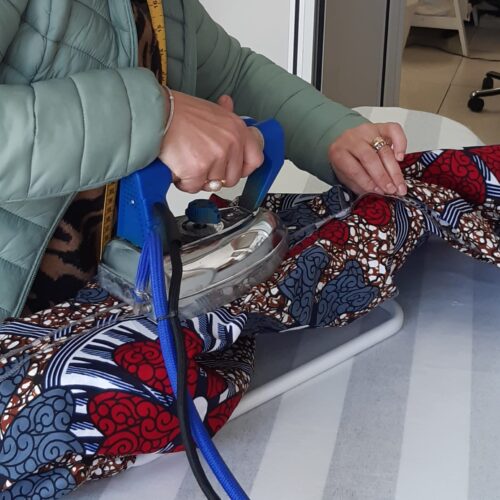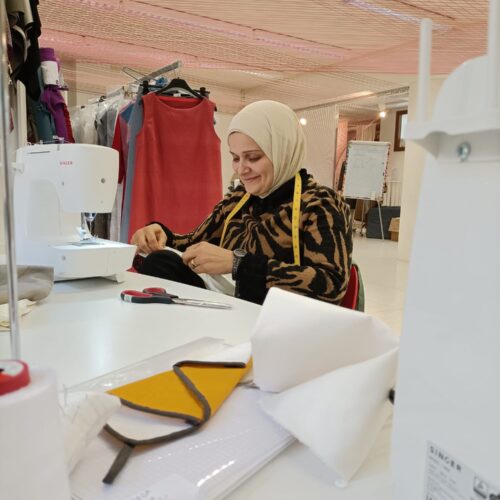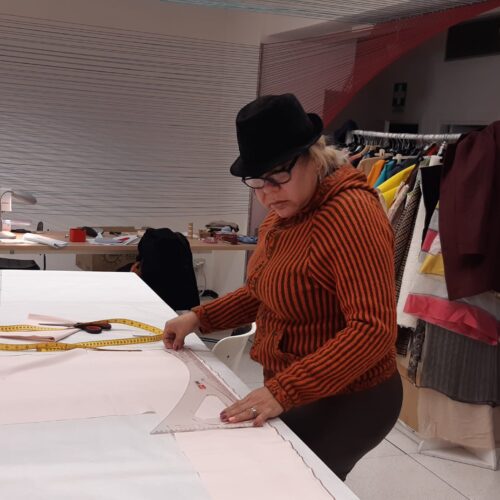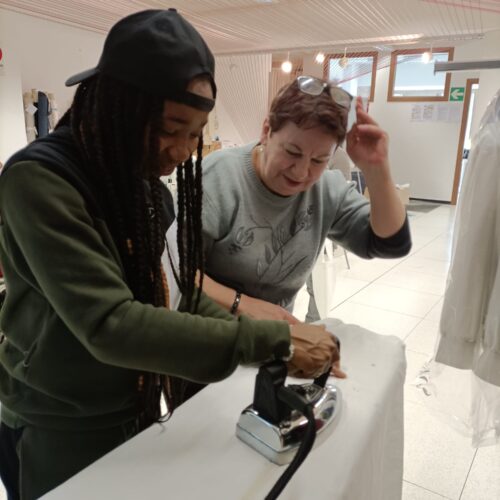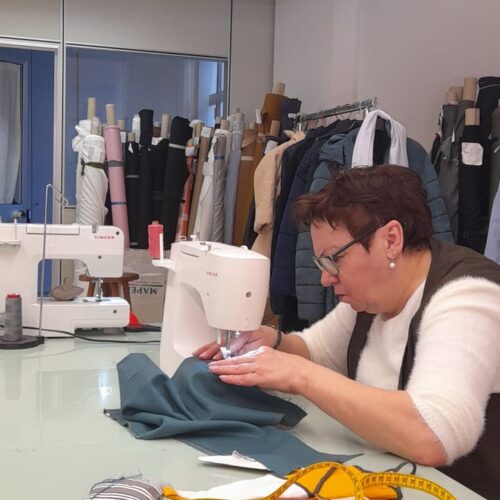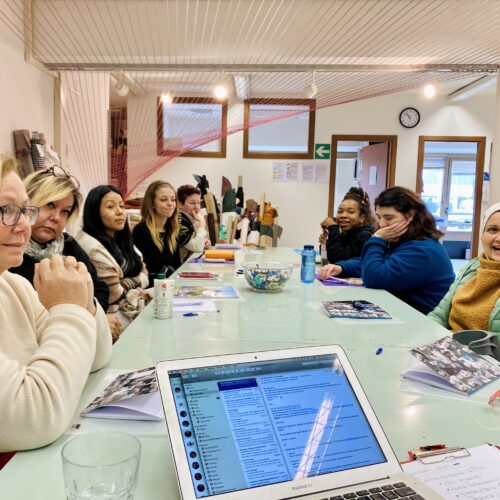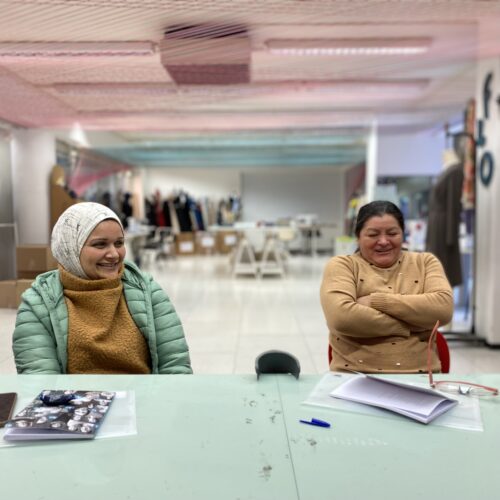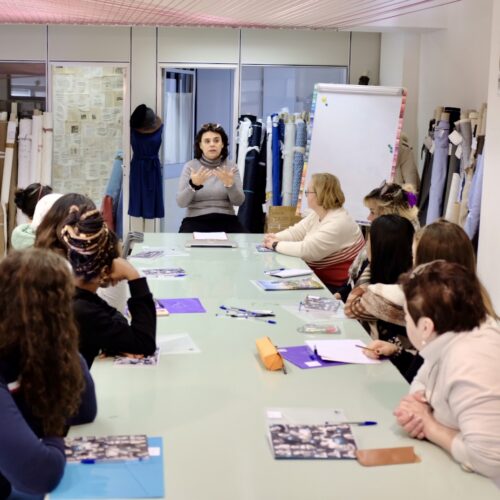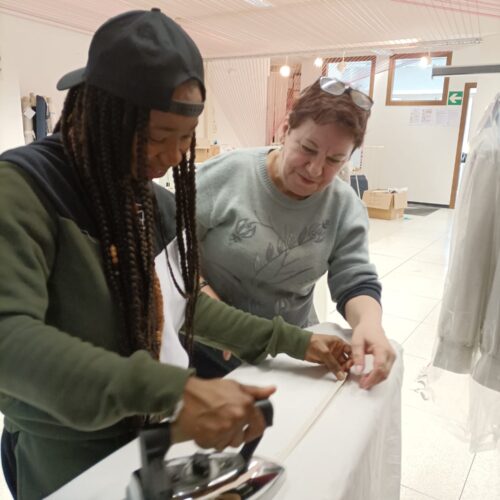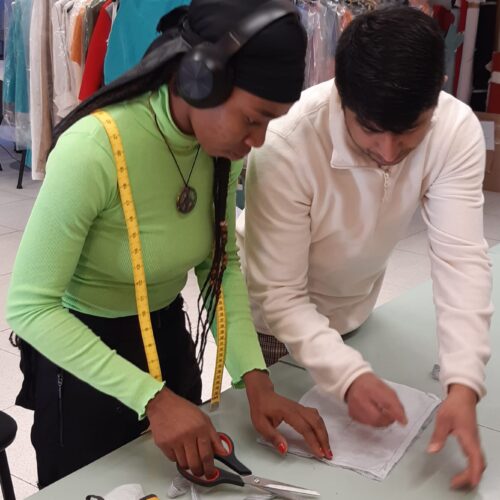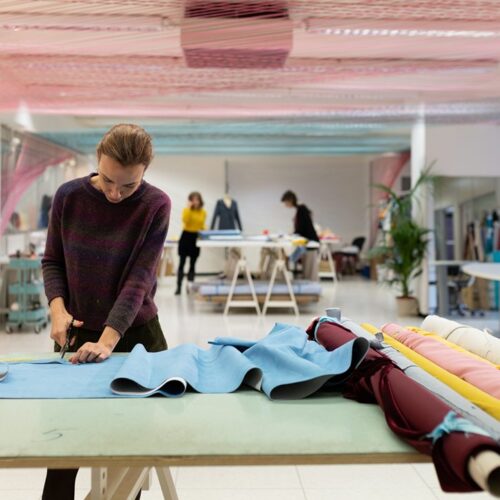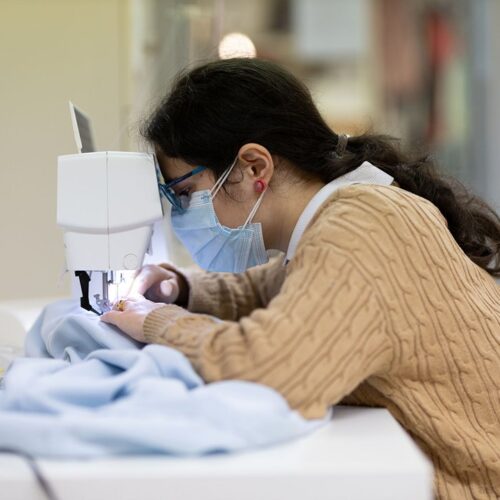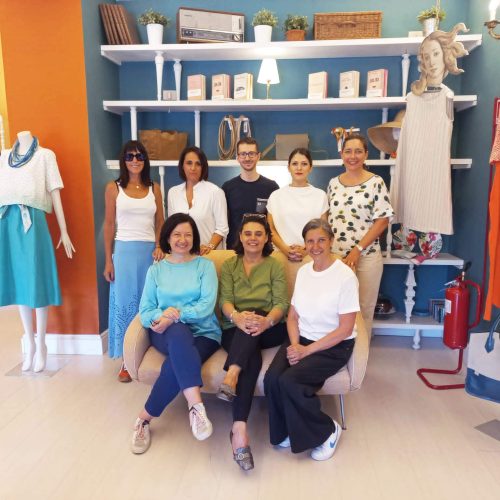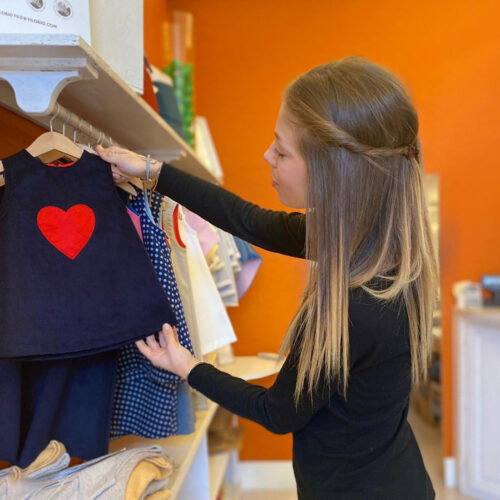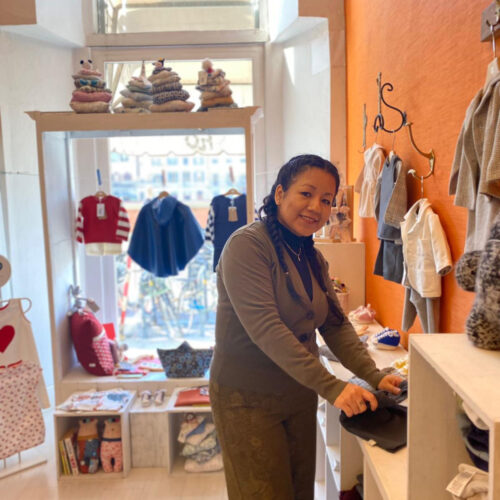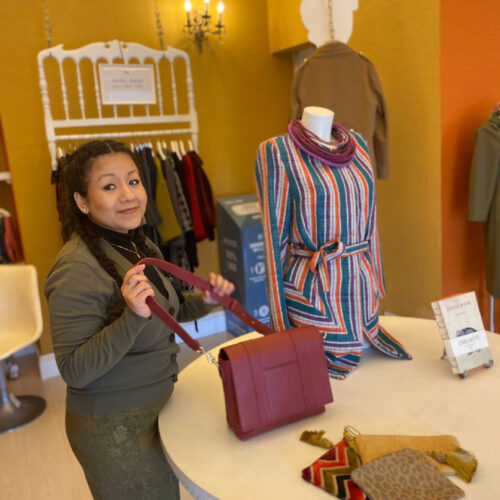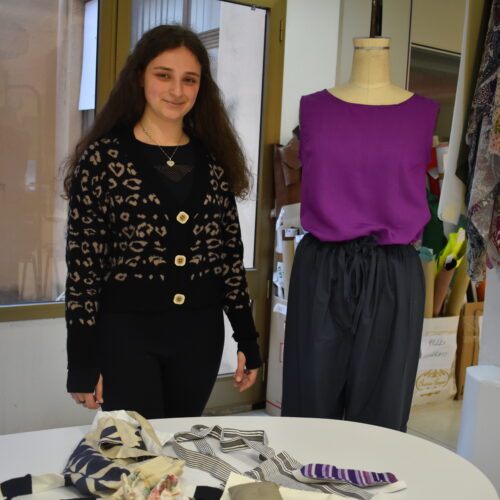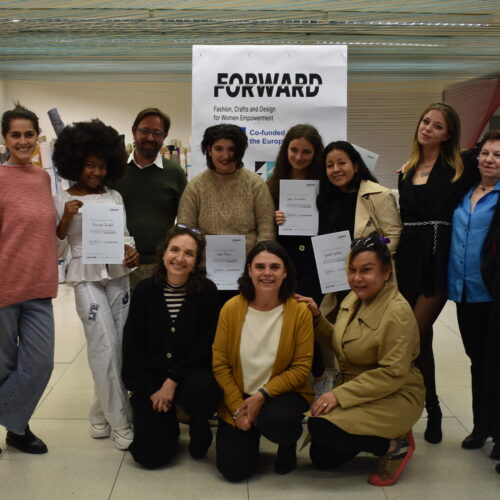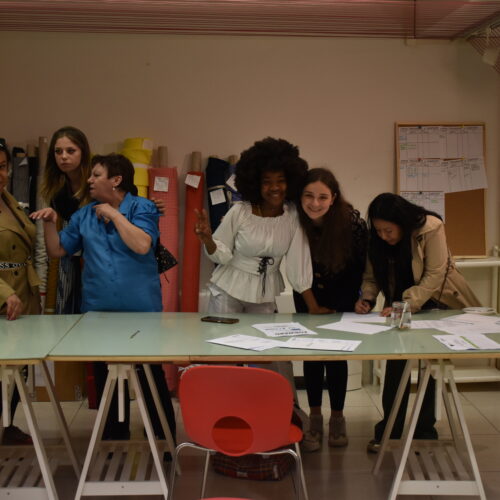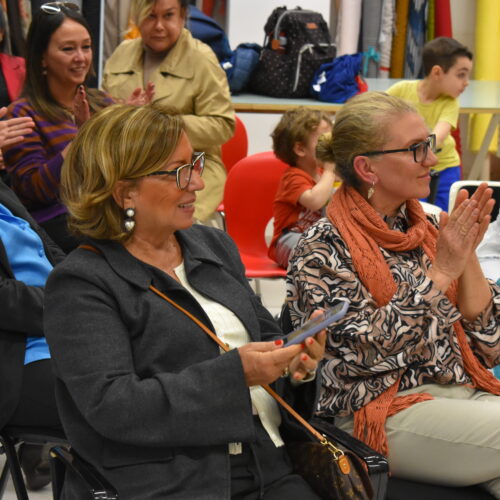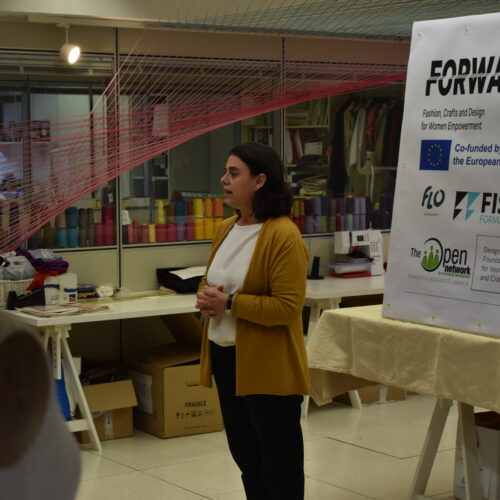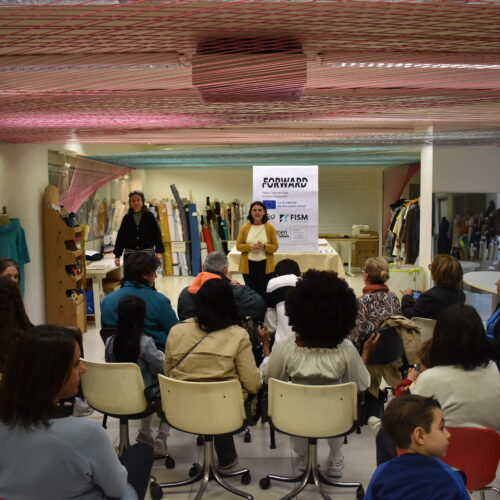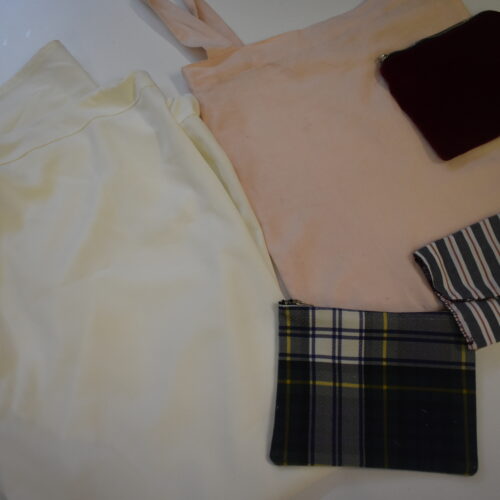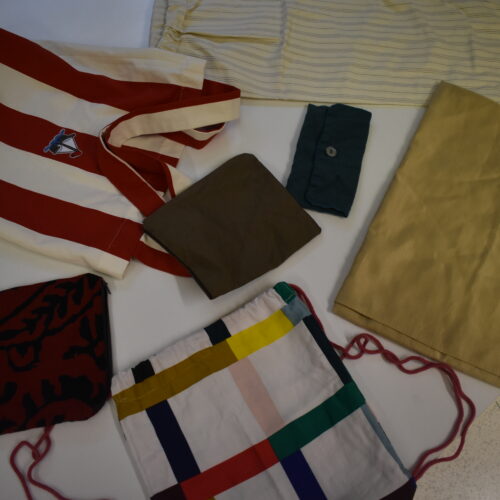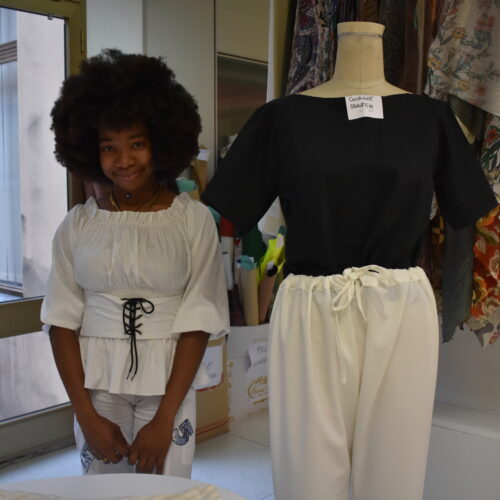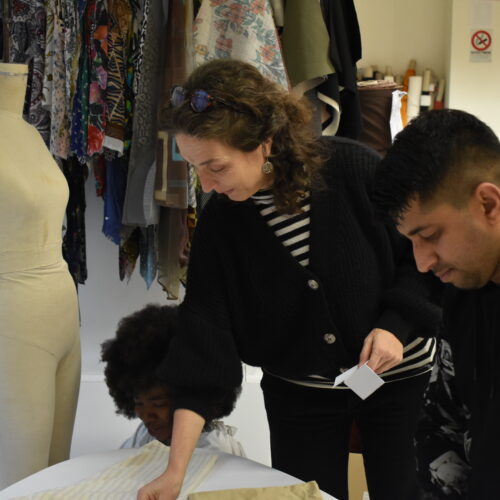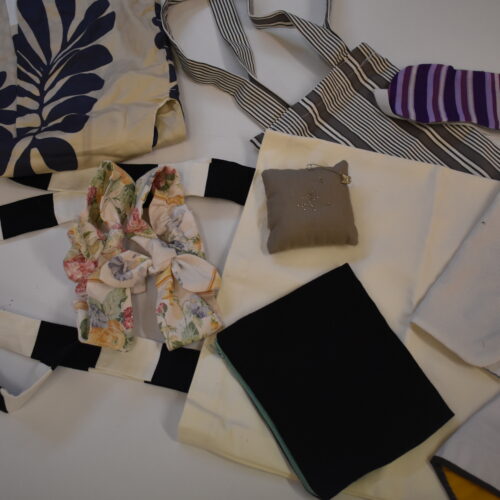Description
Flo innovative training course was held in the two Flo institutional locations: the sewing workshop and the retail store. In order to respond to the requirements of each participant, Flo – in agreement with the participant herself – decided who followed the course for sewers and who followed the course for sales assistants instead. Since the ten candidates who participated in the Flo innovative training course were women coming from disadvantaged backgrounds, it was essential to make sure that each activity of the course took into consideration the beneficiaries’ fragile conditions and their learning ability, so that everybody feels comfortable and at ease while participating. The course had some group sessions, but mostly concentrated on each candidate’s personalised path, focusing on their personal growth as well as on their ability to learn the basic skills necessary for imagining future opportunities in the fashion world.
Timeline
Flo training course was divided into 4 phases of sessions of 4 hours each and each focused on different topics.
Phase 1 were group sessions dedicated to introducing and illustrating the world of fashion and the necessary personal requirements and dispositions in order to aim for a future job in this field.
Phase 2 were also a series of group sessions dedicated to passing on fundamental notions strictly related to the world of fashion, such as: proper terminology, textiles, production steps, machinery, sewing techniques.
Phase 3 were personalised for each participant. Sessions were held either in the sewing workshop, or in the retail store. There was a specific agenda for participants according to their disposition, personal needs and capabilities.
Phase 4 was once again a series of group sessions which concentrated on studying the specific job market, the required level of competences necessary to match the job demand, the official courses provided by institutional channels and local training agencies and how to eventually fill an application.
The course ran between the months of January, February and March, according to the initial selection process, which was held between November 2022 and January 2023.
Location
The training course was held primarily in our atelier, Flo Manufacturing located in Via Cimabue, a 275 square metres large sewing workshop fully equipped with all kind machinery and tools necessary to provide the training course on the art of sewing.
The training was also held in our retail store in Lungarno Corsini, 30/34R, a 85 square metres boutique in the historical centre of the city of Florence, not too far from the Ponte Vecchio. The store sells ready to wear and accessories for ladies and children and many other items which are produced by Flo Manufacturing as well as from young local designers, small local business, individuals which share the same values of our project. In the store, Flo provides personalised training and job placements for future sales assistants.
Expected results and outcomes
The project expected results are of two different kinds. The first one was strictly focused on each woman and her capability to strengthen her personality and increase her self-esteem in regard to her role in the world around her. For women with disadvantaged backgrounds, this capability is often a challenge and therefore creating the right environment that facilitates the acquisition of such a fundamental awareness is a very important opportunity for them to understand and to learn. The second one relates to the opportunity that the beneficiaries have to learn basic or even advanced notions and skills that can open a future possibility to pursue a career in the fashion field and consequently officially enter the job market.
The direct and more tangible outputs from the training course consisted of the manufactured items in Flo’s sewing workshop, and the sales training in the retail store, which allowed them to continue an educational path and demonstrate their level of skill.
